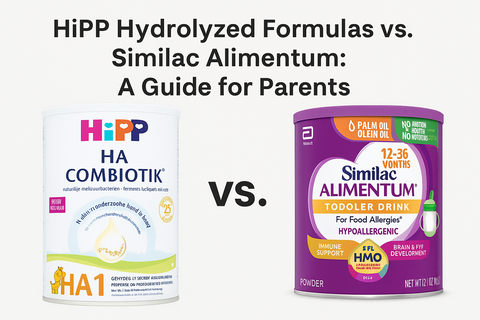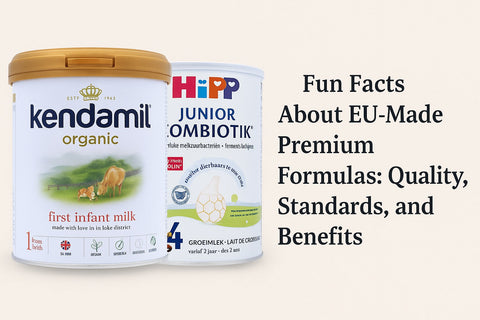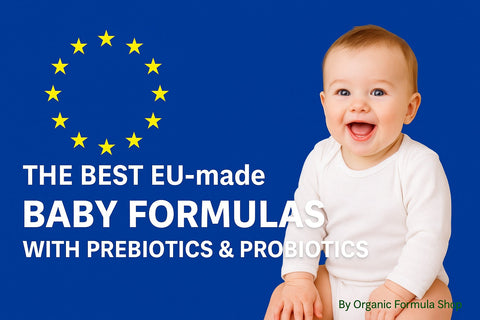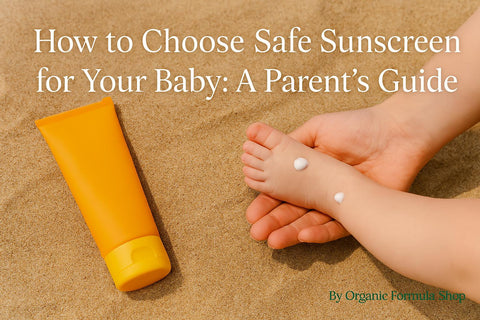The History of the Best Organic EU-Formula Brands
Infant formula, a vital resource for parents worldwide, has a rich history dating back thousands of years. Let's go back in time to uncover the origins of baby formula and the remarkable stories behind renowned European brands like HiPP, Holle, Bebe M, and Lebenswert. From ancient breastfeeding alternatives to cutting-edge organic formulas, we delve into the fascinating evolution of infant nutrition.
The First "Baby Formula" Ever
Let's rewind the clock to the past and discover the early days of baby formula. You see, the concept of nourishing infants with something other than breast milk isn't a recent invention. In fact, it dates back thousands of years when mothers sought alternative feeding options.
Wet Nursing

The practice of wet nursing, which involves a woman breastfeeding another woman's child, was widespread before the invention of feeding bottles and formula. Wet nursing can be traced back as early as 2000 BC and persisted until the 20th century. Over this extensive period, wet nursing transitioned from being a necessity (in 2000 BC) to becoming a matter of choice (from 950 BC to 1800 AD). It eventually evolved into a profession with contractual agreements and legal regulations.
Despite facing objections during the Middle Ages and the Renaissance, wet nursing continued to be a common practice until the introduction of the feeding bottle in the 19th century. With the availability of a viable alternative feeding method, the profession of wet nursing rapidly decreased until it eventually disappeared altogether.
The Feeding Bottle
While wet nursing was the preferred method for alternative feeding, historical evidence indicates that artificial feeding methods were also employed in ancient times. Containers came in all different shapes and sizes, dating back thousands of years BC. References to rudimentary feeding bottles and concerns about their cleanliness can be found in records spanning the Roman Era, Middle Ages, and the Renaissance. It wasn't until the Industrial Revolution that a more sophisticated and hygienic feeding bottle became accessible.
Fun Fact:
Have you ever heard of clay vessels dating back to 2000 BC, found in the graves of newborns? At first, folks believed these were oil lamp containers, but guess what? Chemical analysis showed traces of casein from animal milk inside them. It turns out that ancient civilizations were experimenting with alternatives like cow's milk, goat's milk, and more. Though far from today's standards, these early attempts were baby steps toward the modern infant formulas we know today.
Creation Of Infant Formula
Using animal milk for infant feeding dates back to 2000 BC, marking an ancient practice. Over time, alternative milk sources evolved into the infant formulas we use today. In 1865, the first patented infant food entered the market, and by 1883, the baby formula market had exploded with numerous products. Advances in food preservation facilitated the rise of formula feeding as a convenient and cost-effective alternative.
Early baby formulas, including evaporated milk formulas from the mid-1800s, provided calories but lacked essential nutrients such as vitamins and minerals. It wasn't until 1929 that the American Medical Association began monitoring formula quality. By 1940, with solid support from the medical community, baby formula emerged as a mainstream and healthy alternative to Breastfeeding.
Formula-feeding vs Breastfeeding
For many parents considering formula, a top concern is whether baby formula is an acceptable replacement for breast milk. This may be one of a parent's first choices for their child, and it's unsurprising for them to wonder: How does breast milk compare to baby formula? Will my baby still thrive if I use formula?
We all agree that breast milk is a natural and healthy way to feed a baby. It is a miraculous creation that provides a unique blend of essential nutrients perfectly tailored to meet your baby's growing needs. On the other hand, European Organic Baby Formulas offers a fantastic alternative for parents who can't or choose not to breastfeed. EU Organic formulas are made from high-quality, carefully selected organic ingredients, and strict regulations set by the EU regulate the manufacturing process. They are free from synthetic pesticides, hormones, and other potentially harmful substances, making them the best breastfeeding alternative.
One of the key considerations when comparing breast milk and infant formula is the nutritional composition. Breast milk contains a complex blend of proteins, fats, and carbohydrates specially designed for your baby's needs. EU-manufactured Formulas offer premium Cow, Goat, HypoAllergenic, and Specialty formulas. Each formula is carefully formulated to provide a balanced and adequate supply of nutrients that support your baby's growth and development. Organic Formula Shop carries a wide variety of great EU-organic certified Formulas.
The History Of HiPP Formula
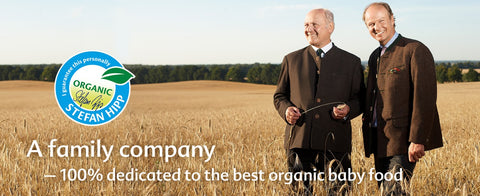
In the late 19th century, Joseph Hipp embarked on a journey that would shape the future of infant nutrition. Joseph initially worked at a bakery and candle shop in Pfaffenhofen. Eventually, he assumed ownership of this little company. After he married, twins arrived in 1899, presenting a nutritional challenge. Their mother faced difficulties with Breastfeeding, prompting their father to seek a solution. As a resourceful baker, Joseph tackled this challenge with creativity. He crafted rusks and developed his rusk flour. He created a more nourishing solution by enriching milk with this rusk flour. The twins survived and thrived; the family grew with five more children.
1956: Pioneering Organic Farming
With the commencement of industrial baby food production, HiPP embarked on a journey into organic farming in 1956. This venture aimed to cultivate fruits and vegetables using natural soils, eschewing chemical inputs, and make healthy and delectable baby food from organic ingredients. Since then, the younger generations have taken over the company and developed the concept of organic farming.
Hipp Today
Since those early days, HiPP has experienced continuous growth and global expansion, solidifying its position as the world's largest processor of organic-biological raw materials. Today, HiPP Organic Formula is one of the most sought-after baby formulas, renowned for its exceptional quality and nutritional excellence. HiPP is dedicated to its core values of providing high-quality organic foods that promote well-being for consumers and the environment.
HiPP's USP's
Here are some key points of what makes the HiPP company and its products special in various aspects:
- Sustainability as a corporate philosophy
- European Union certified-organic formulas
- Preventive measures for plant protection
- Breed and species-specific livestock keeping
- Prohibition of mineral nitrogen fertilizers
- Absence of hormones, with antibiotics used only when necessary
- Formulas free of GMOs, artificial colors, preservatives, aromas, or flavor enhancers
At Organic Formula Shop, we're proud to be the #1 reseller of HiPP formulas in the US!
The History Of Holle
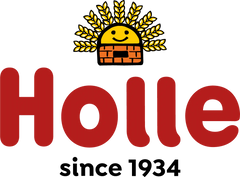
Holle, another excellent European Organic Baby Formula Manufacturer, has 9 decades of history as a prominent producer of organic baby formula and food. Founded in 1934 in Arlesheim, Switzerland, Holle has firmly established itself as a pioneer in organic baby nutrition. Holle was among the earliest companies to attain the Demeter organic seal for their product range. Since 2016, all Holle baby porridges, milk cereals, and goat milk products have been CO2e neutral, offsetting their carbon footprint while delivering high-quality products.
Holle's products are characterized by:
- Highest Organic Standards in Europe (Demeter)
- Premium quality milk sourced from happy cows
- Simple ingredients supporting healthy development
- Commitment to chemical and hormone-free agriculture and manufacturing
- Formulas free of artificial sweeteners and GMOs
Because of all the goodness mentioned above, our Holle's Organic Cow Milk Formulas and Organic Goat Milk Formulas have been in popular demand by US parents since day one!
Below, you can see the impressive timeline of Holle's developments from the start in 1934 until the present time:



Not sure which Hipp or Holle formula to choose? Check our interesting blogs about Holle Goat Formula vs. HiPP Goat Formula and Holle Cow vs. HiPP Cow.
History of Lebenswert
With Lebenswert, introduced by Holle in 2009, it provides parents with a more budget-friendly organic formula option. Holle is an established and respected manufacturer with nearly 90 years of experience in the baby food industry. That said, Lebenswert makes no compromises when providing your little one with a formula made according to high European organic standards with premium ingredients.

Brand fact:
The name "Lebenswert" translates to "life's worth," reflecting the brand's dedication to ensuring every baby receives the highest quality nutrition from the very start.
The Bioland certification of all Lebenswert ingredients means that the formula is derived from farms that abide by high standards of farming practices. Bioland certification is a guarantee of purity and strict farming practices, meaning:
- Only using untreated seeds
- Using preventive measures to protect plants
- Keeping livestock according to breed and species
- Using natural compost in place of chemical or synthetic agents
- Hormones are prohibited, and antibiotics are only permitted when necessary for animal health
Because the Lebenswert brand avoids peanuts, soy, and wheat ingredients, it's much less likely to cause allergic reactions than some brands that get ingredients from those sources.
Formulas today
The journey of organic baby formulas is a tale of dedication, innovation, and a profound commitment to infant well-being. HiPP, Holle, Lebenswert, and Bebe M have been at the forefront of this evolution and consistently set new standards for quality and nutritional value. Early organic formulas were niche products, appealing primarily to parents who valued organic farming practices and natural ingredients. In the last decade, awareness grew among US parents regarding the health benefits of EU-organic formulas compared to the overall lagging quality of US-produced formulas. Hence, the popularity of EU-manufactured formulas surged.
One of the keys to the success of European baby formula manufacturers is their strict adherence to quality standards compared to the US formulas. HiPP, Holle, Bebe M, and Lebenswert have consistently recognized the importance of producing formulas that meet or exceed the stringent regulations governing infant nutrition in the European Union.
In comparing organic formulas in the United States and Europe, European organic agriculture standards set by the European Food and Safety Authority, EFSA, tend to be stricter than those of the FDA. European formulas, organic or not, must be free from detectable levels of pesticide residue. They also have a longer list of prohibited ingredients, such as guar gum, pectins, fructans, and carrageenan. Furthermore, European Organic Formulas require at least 30% of carbohydrates to come from lactose, a requirement absent in the United States, even for organic formulas. Sucrose (table sugar) is permitted in European formulas only in small quantities for specific feeding conditions. Certifications such as Demeter and Bioland guarantee that ingredients in formulas like Holle Cow and Bebe M come from biodynamic, non-GMO farms, upholding high standards for animal welfare, ecosystem preservation, and sustainability. While many US formulas are marketed as "Non-GMO," the lack of a universally accepted definition for genetic modification means manufacturers may not disclose whether their products contain GMOs.
In Summary
And there you have it, the incredible journey of baby formula from ancient times to modern excellence. It’s a story of dedication, innovation, and a profound commitment to the well-being of infants everywhere. As we look to the future, we can anticipate even more remarkable developments in organic infant nutrition. Through it all, the best organic EU-formula brands, including HiPP, Holle, Bebe M, and Lebenswert, will remain at the forefront, ensuring that every baby receives the very best start in life!
Contact
Contact our dedicated customer support team for expert advice and guidance tailored to your baby's needs. Our customer success team has earned hundreds of 5-star reviews from customers dedicated to helping you provide the best nutrition for your little one. Contact us here or shoot us an email at support@organicformulashop.com. We're here to help!
Happy Feeding!
Disclaimer: This information is based on general trends in breastfeeding and nutrition. It is not medical advice. Always consult your healthcare provider for personalized guidance on your breastfeeding journey.

